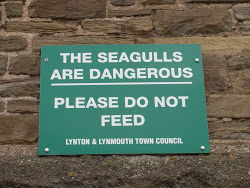See our SMARTBoard presentation first! – Uploading soon.
Lots of readings to cover this week, but Natalie and I got off to a good start in preparing for our presentation. New London Group seemed to be the most daunting, even after reading it again since my Master of Educational Technology course (and it is on the reading list for LLED 601 later this term). It tells an enticingly simple story of where literacy education was at the end of the 20th century, and how it must be designed for the 21st, making the fullest use of multiliteracies. In predicting changes to lifeworlds, even without the paranoia caused by September 11th, the Group seem to have envisioned Twitter and Facebook. People are reading information in a decidedly more public way, and able to comment on what others are up to, that would have shocked other in the late 1990’s. One issue that comes up is harm that happens, and cases like Amanda Todd get more attention than most people are able to deal with in a respectful way. Amongst the obscenities and wry comments in Lewis CK’s latest stint on Conan O’Brien’s talkshow, he raises an interesting point about the lack of empathy children have for other when most of their interaction happens through a smartphone screen.
James Paul Gee, one of the New Londoners, as well as Knobel and Lankshear, see the young students’ ability to process the vast amount of information coming at them from all corners as a sign of multitasking, and it was a good point raised in this week’s discussion that how well these students are able to blog, listen to music and study at the same time is not made clear. On the one hand, if students are productive with so many resources at their fingertips, it will encourage others to make use of any device within reach, never mind the digital divide that supposedly limited how many can access these tools. Yet on the other hand, society seems to have taken just as many steps forward as they have regressed into a mob mentality due to anyone being able to say anything in a vaguely anonymous manner. Another recent example is the fall-out from Guido Barilla’s anti-LGBT comments. It is unfortunate that the chairman of an otherwise successful pasta company needed to air his views on the “family values” issue, and equally sad that he is not as unbiased and enlightened as others appear to be. Somehow hectoring him to conform to a 21st century standard makes social justice all the more oppressive, when tolerance is only granted to those with the same level of tolerance.
Finally, two other article that captured my attention were Kress and Bhattacharya. Another New Londoner, Gunther Kress writes about mutlimodality in the year 2000, and takes a less digital, more “at hand” or manual approach to the different forms literacy takes. The shape and feel of a bottle of water, the images on the label, the taste of local spring are all working together to make one brand more appealing than another – good thing he stayed away from the pasta aisle when generating his thoughts on this topic! For him, there are multiple ways of experiencing the same thing, yet a more critical stance is taken by the more modern Usree Bhattacharya, who problematizes the western alphabet and the Eurocentric culture of education. When it comes to histories disrupted by the colonial takeover of the world, learning to type or text using only the 26 letters provided (less and less accents, tildes and umlauts seem to be required) by the English alphabet makes for easier computer processing, but a less dialectally interesting world. Two developments occurring with digital literacy could be the game-changers for New Londoners and their new literacies-backed opposition alike: video lectures and online gaming communities (what Gee calls an affinity group). The former is evident with popular websites such as TEDtalks and RSA, which produce digital video of lectures and can communicate radical ideas across the world, no doubt in as many languages as subtitle-writers permits; it moves the information age into the visual and aural corners of the New London Group’s multimodality circle. The latter allows for people to work past political and socia-economic boundaries in the form of avatars (or more simply players – the spatial and gestural modalities) to tackle important issues like zombie invasions or minecrafting.


